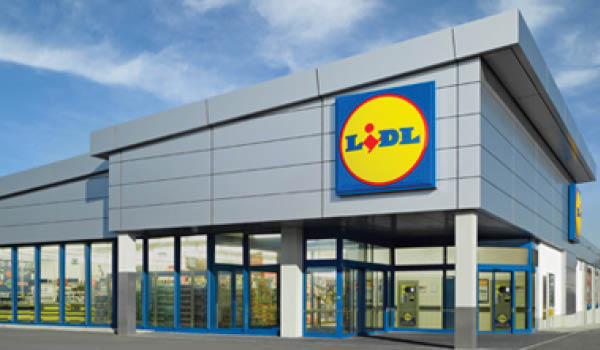Thirty nine of the world’s top 250 retailers now operate in Australia, up two from last year, and there’s more on the way in 2016, according to the 2016 Global Powers of Retailing report from Deloitte.
The 19th edition of this annual Deloitte report identifies the 250 largest retailers globally by revenue and examines current global trends and economic prospects in retail.
David White, partner and national leader of Deloitte’s Retail, Wholesale and Distribution Group, said the Australian market remains relatively unsaturated by the world’s largest retail brands compared to the US and European markets.
“With just 16 per cent of the world’s top 250 retailers currently operating in Australia, coupled with a relatively stable economy, significant discretionary spend and strong consumer demand for international brands and products, we can expect further disruption in the market with new entrants highly likely. Australian retailers will need to be vigilant in ensuring they are differentiating themselves from their competitors by offering the right product range and mix and delivering a service, instore and online, that meets their customers’ expectations,” White said.
Likely to have the one of the biggest impacts on the Australian convenience channel would be the arrival of German-based Lidl, which ranked fourth in this year’s top 250. Privately owned by the Schwarz Group, Lidl operates nearly 10,000 stores in 26 countries and is understood to be seeking new markets due to it nearing saturation in many European countries. Lidl is yet to confirm its entrance despite mounting industry speciation its arrival to the market is imminent given the success of its rival, Aldi, which climbed from eighth position in 2015 to seventh in this year’s top 250.
Top 250 global retailers
Walmart retained its number one position in this year’s Deliotte ranking for the second consecutive year, followed by fellow US retailer Costco, which also ranked second in 2015. Woolworths and Wesfarmers continue to be the two retailers representing Australia in the top 250, at 21 and 23 respectively. While these retailers’ rankings have slipped for a second consecutive year (from 18 and 22, respectively, versus last year), the decrease is primarily due to a circa 9 per cent depreciation in the Australian dollar against the US dollar, rather than a contraction in revenues, according to the report.
Top 10 global retailers by revenue
| Ranking
2016 |
Name of company | Country of origin | FY2014 retail revenue (US$m) | Ranking
2015 |
| 1 | Wal-Mart Stores Inc. | US | 485,651 | 1 |
| 2 | Costco Wholesale Corporation | US | 112,640 | 2 |
| 3 | The Kroger Co. | US | 108,465 | 6 |
| 4 | Schwarz Unternehmenstreuhand KG | Germany | 102,694e | 4 |
| 5 | Tesco PLC | UK | 99,713 | 5 |
| 6 | Carrefour S.A. | France | 98,497 | 3 |
| 7 | Aldi Einkauf GmbH & Co. oHG | Germany | 86,470e | 8 |
| 8 | Metro AG | Germany | 85,570 | 7 |
| 9 | The Home Depot Inc. | US | 83,176 | 9 |
| 10 | Walgreen Co. (now Walgreens Boots Alliance Inc.) | US | 76,392 | 11 |
| 21 | Woolworths Limited | Australia | 49,572 | 18 |
| 23 | Wesfarmers Limited | Australia | 48,095 | 22 |
FMCG dominates top 250
Retailers of fast moving consumers goods (FMCG) continue to represent the largest product sector, according to the 2016 Global Powers of Retailing report, accounting for half of all top 250 retailers and two thirds of the top 250 retailers in 2014.
Although the companies in this sector are the largest in size as well as number, averaging almost US$24 billion in retail revenue, they remain the least global. In 2014, more than 40 per cent operated only within their domestic borders. As a group, they operated in an average of 5.3 countries compared with 10.4 countries for the top 250 as a whole.
In 2014, composite retail revenue grew 4.1 per cent, on par with the prior year. Of the 95 FMCG companies that reported their profits, only nine operated at a loss. However, more than half saw their net profit margin shrink in 2014. As a result, the sector’s composite net profit margin fell to 1.9 per cent.
Australian outlook for 2016
From an Australian perspective, retailers remain optimistic about their fortunes for 2016. In a Deloitte survey of retailers operating in Australia released in December, 82 per cent expected their earnings to grow in 2016 with 41 per cent expecting earnings growth to exceed 5 per cent. The same survey showed that nearly two thirds of respondents believe that foreign-owned retailers are their greatest competition in the future.
White told C&I Week in December grocery price wars and increasing competition from international retailers were among the main concerns for food and beverage and convenience retailers heading into 2016.
“The majority of respondents operating in the food and beverage and convenience sectors cited the ever increasing levels of competition in the market as their main concern heading into FY16,” White said.
“In particular, this increase in competition is predominately expected to be focused around price. However, a number of respondents are also focused on increasing the quality of goods being stocked in store as a means of gaining market share. In terms of the greatest source of competition, the majority of food and grocery and convenience respondents believe that foreign-owned bricks and mortar stores will be their greatest threat in 2016.”

